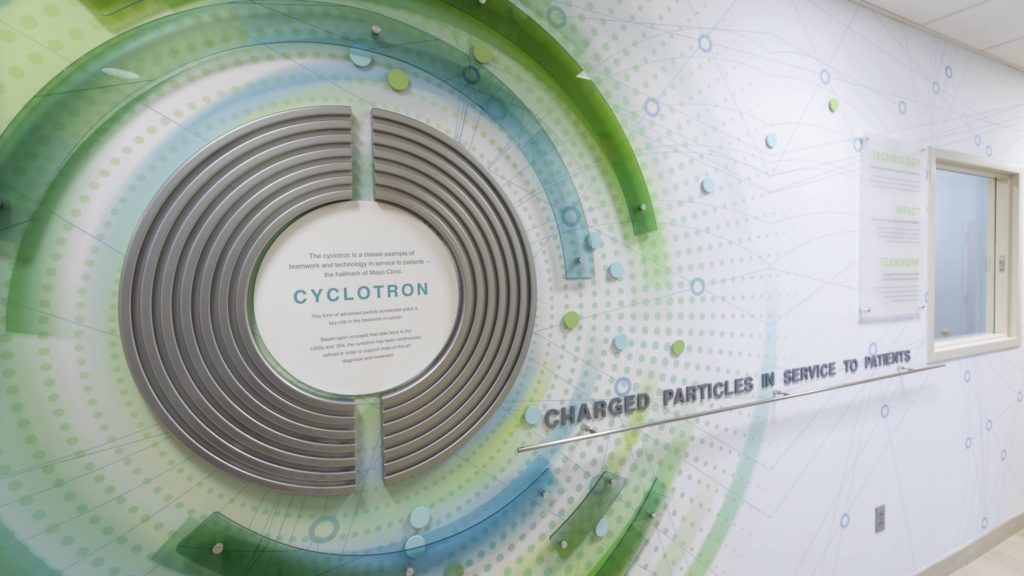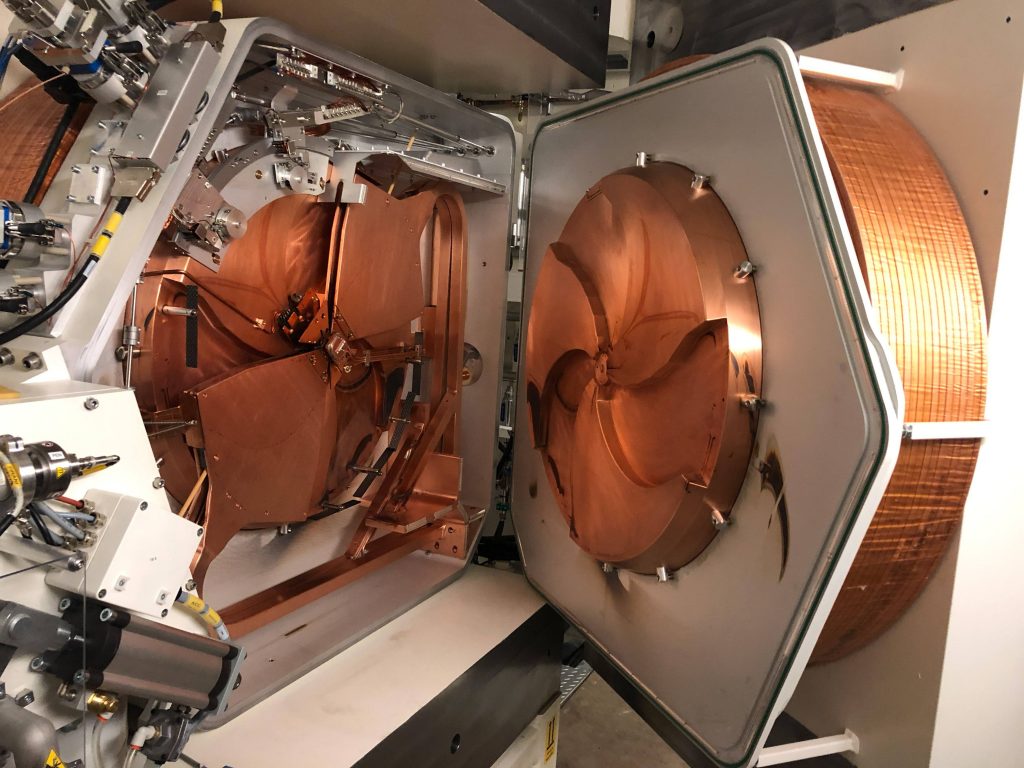-
Florida
Mayo Clinic in Florida’s Division of Nuclear Medicine evolving to meet growing needs

JACKSONVILLE, Fla. — Since 2018, the Division of Nuclear Medicine at Mayo Clinic in Florida has undergone a dramatic evolution, adding to its footprint, equipment and staff.
Through this transformation, the division has added to its research and clinical capabilities, and now offers nuclear medicine therapies. Nuclear Medicine is part of the Department of Radiology.
"The growth of the Division of Nuclear Medicine ensures that Mayo Clinic in Florida is able to provide the best diagnostic tools and the latest therapies to patients," says Manoj Jain, M.D., chair of the Division of Nuclear Medicine at Mayo Clinic in Florida. "The U.S. Food and Drug Administration approval of Ga-68 dotatate (NETSpot) and Lu-177 dotatate (Lutathera) was a great step forward toward precision medicine."
These developments are charting a path for the Divisions of Nuclear Medicine across Mayo Clinic to offer similar services and coordinate research, which will expand access.
"There has been enormous growth in 2019 and throughout 2020," says Ephraim Parent, M.D., Ph.D., a Mayo Clinic radiologist. "We are able to harmonize with our colleagues across the country."
Among the advancements at Mayo Clinic in Florida are new molecular imaging capabilities, including two dedicated treatment rooms where patients are given therapeutic radiopharmaceuticals and eight radiotracer uptake rooms for patients to await radiopharmaceutical infusion and scanning.

What's new?
Over the past three years, significant additions of cutting-edge technology have enabled the expansion of molecular imaging. The Division of Nuclear Medicine, which has an on-site cyclotron and a PET Radiochemistry Facility, has installed three PET/CT scanners, a PET/MRI, and two SPECT/CT cameras.
"This has helped in imaging and treatment of patients with cancer, neurological disorders, cardiac disease and infectious or inflammatory disease," Dr. Jain says, adding that hybrid imaging like SPECT/CT, PET/CT and PET/MRI has greatly advanced the practice of nuclear medicine.
With the FDA clearance of Florida's cyclotron in 2019, many specialized radiopharmaceuticals can now be produced on-site for clinical use, including C-11 choline for prostate cancer; F-18 fludeoxyglucose for cancer, cardiac and neurological imaging; N-13 ammonia for cardiac imaging; and F-18 sodium fluoride for skeletal metastatic disease.
After FDA approval in 2018, the department was quick to bring a pair of therapeutic-diagnostic, or thera-nostic, agents into routine clinical practice: Ga-68 dotatate (NETSpot) and Lu-177 dotatate (Lutathera).
"FDA approval of these diagnostics and targeted therapies is a great step forward toward precision medicine," Dr. Jain says.
Education
Nuclear Medicine physicians play an important role in resident and trainee education, developing highly competent radiologists. Resident teaching includes didactic and case conferences, and continues during readouts.
"We have recently started a 16-month Nuclear Radiology pathway that will make residents eligible for certification in Radiology and Nuclear Radiology," Dr. Jain says. "And our new Nuclear Medicine and PET Fellowship Program will welcome its first candidate, starting in 2022 or soon thereafter, pending Accreditation Council for Graduate Medical Education approval."
Research
Research in the Division of Nuclear Medicine is focused on patient outcomes, conducted with the hope that new therapies and capabilities can move to the clinical practice quickly. Research endeavors involve PET/MRI, dynamic imaging, multiple time point imaging, Oncology, Neurology, novel radiotracer development for oncologic, neurosciences and cardiologic research, and small-animal imaging with the goal of translating these new protocols to humans. For instance, two new PET radiopharmaceuticals for investigational clinical research use at Mayo Clinic in Florida have been approved by the FDA in the past year, allowing a first-in-human trial Mayo Clinic, as well as nationwide multisite clinical trial studies for innovative molecular imaging and precision therapy research.
Dr. Jain says he anticipates more new radiopharmaceuticals will be coming soon from the department to support cutting-edge research at Mayo and advance the clinical practice.
What's next?
In 2021, the Division of Nuclear Medicine plans to expand cardiac PET imaging services to diagnose coronary artery disease and identify viable and functioning heart tissue.
A new prostate-specific membrane antigen (PSMA) imaging and radioligand therapy has shown promising diagnostic accuracy and individualized therapy for prostate cancer. This thera-nostic agent will be added to the clinical practice once it is approved by the FDA.
The Division of Nuclear Medicine also is working on new digital and artificial intelligence technologies for use in practice, education and research.
###
About Mayo Clinic
Mayo Clinic is a nonprofit organization committed to innovation in clinical practice, education and research, and providing compassion, expertise and answers to everyone who needs healing. Visit the Mayo Clinic News Network for additional Mayo Clinic news and Mayo Clinic Facts for more information about Mayo.
Media contact:
- Ethan Grove, Mayo Clinic Public Affairs, newsbureau@mayo.edu







